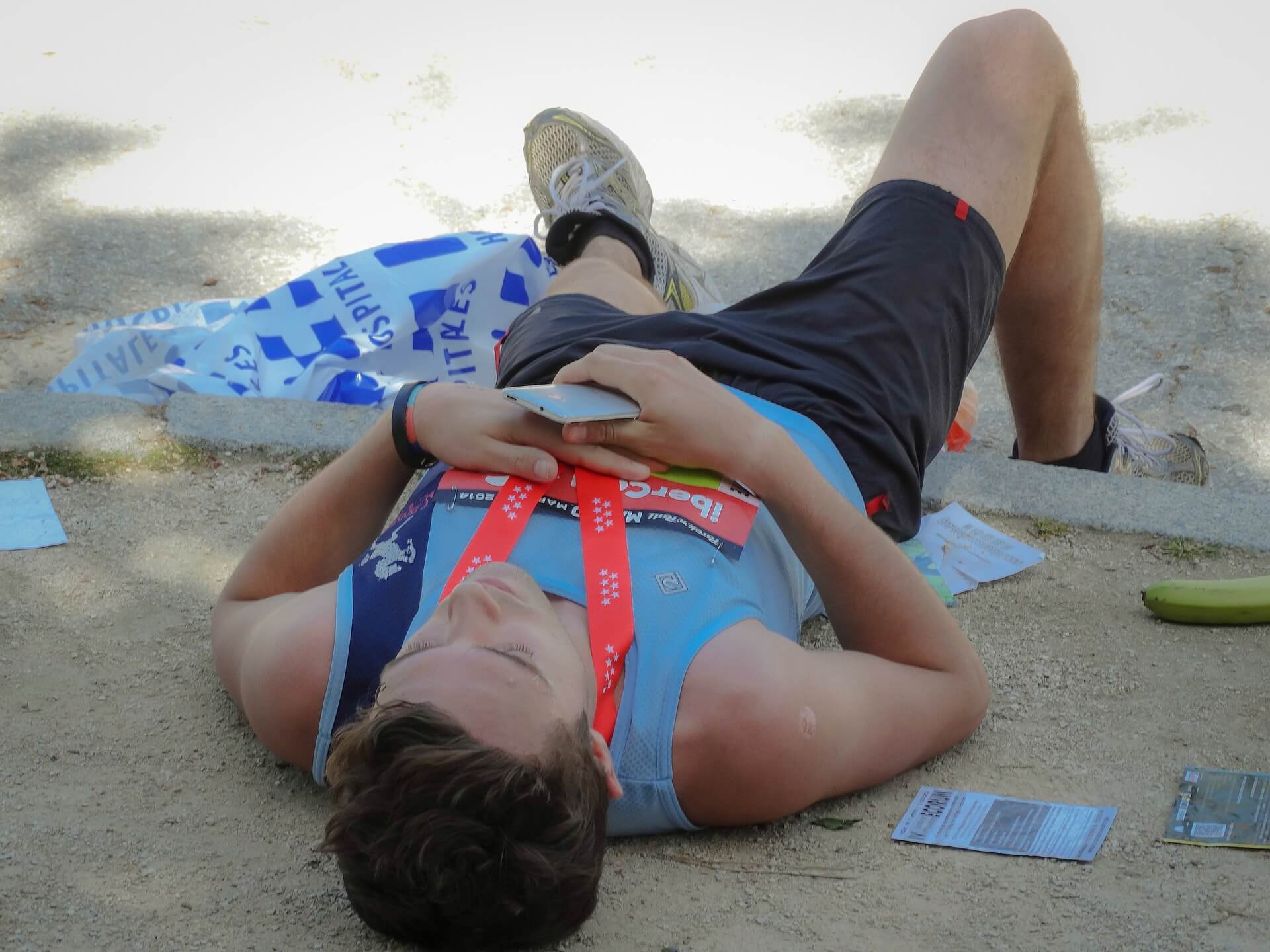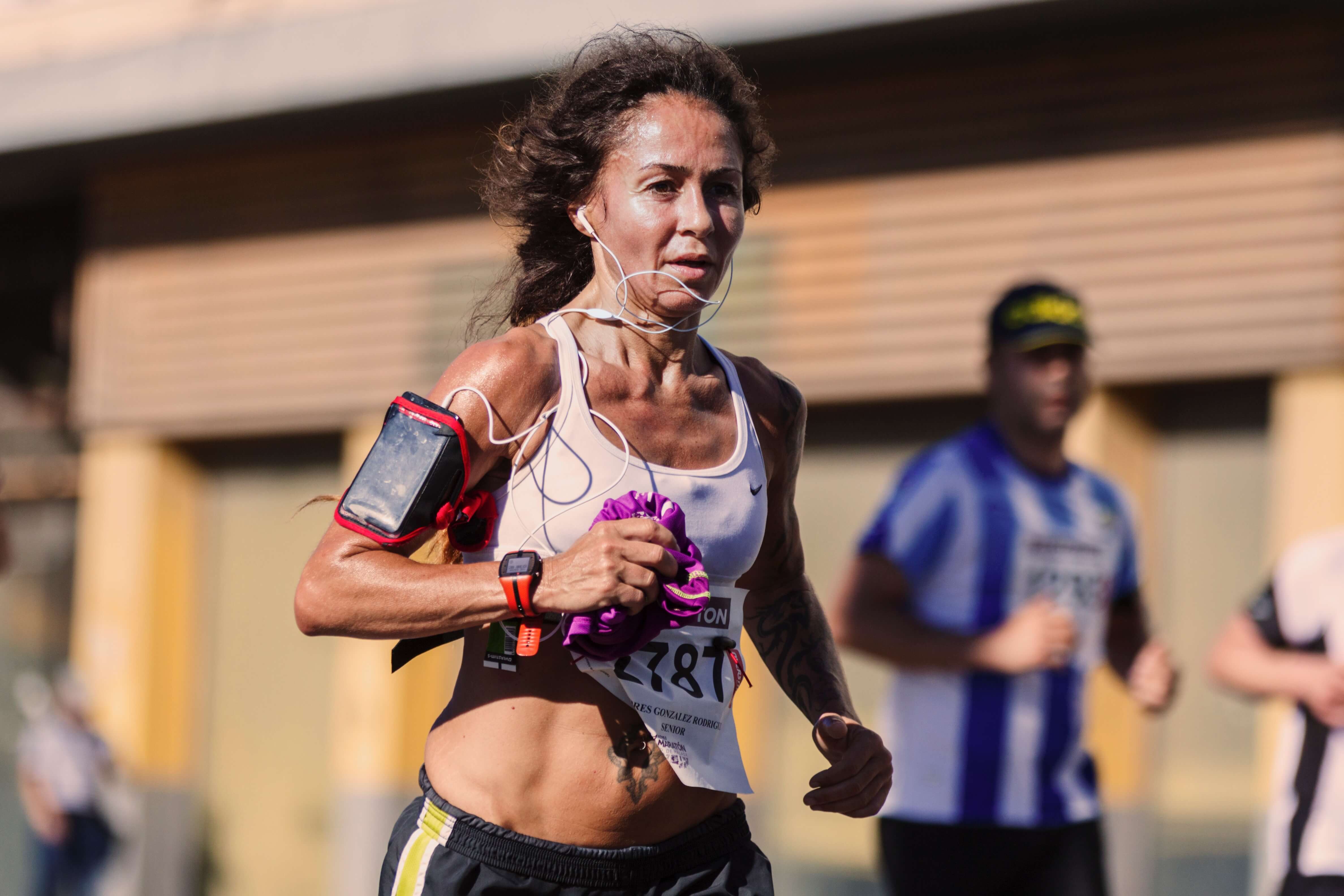Iron Deficiency in Runners

Anemia and iron deficiency are popular topics in the world of endurance sports. These conditions are quite common in female athletes especially since they lose more blood during menstruation, but can also often occur in men. It is suggested that up to 80% of people in the world are deficient in iron. Out of this percentage, about 30% are anemic. Since iron is not naturally produced by the body and must be ingested through the diet or supplementation, it is easy for this condition to arise in anyone. The symptoms of low iron levels can mimic an array of other conditions and are symptoms that are easily ignored. Runners are a common group of those affected who generally ignore the signs of iron deficiency until their performance is greatly affected.
Training for marathons includes hours of running per week, which causes exhaustion in itself, so it can be hard to tell if the amount of exhaustion one is feeling from running is a normal training response or linked to low levels of iron. Runners who feel this symptom will make sure to eat more, sleep more, and take a few extra rest days, but with iron-deficiency, the symptoms will continue until the iron is supplemented. For runners and other endurance athletes who are serious about improving their performance, not getting enough of this mineral can cause dangerous repercussions.

What is Iron?
Iron is necessary for the growth and development of the body. It is the mineral in charge of creating hemoglobin and myoglobin, which are proteins in red blood cells that transfer oxygen from the lungs to all parts of the body and to the muscles, respectively. Iron deficiency is when the iron level in the body is low, but the binding capacity for iron is high, and ferritin is low, which is the level of storage available for iron. Anemia is a type of iron deficiency that presents with low red blood cell count, which means less of the necessary proteins available to transport the oxygen throughout the body.
How Much Do We Need?
The amount of iron needed varies depending on age, sex, and type of diet one consumes. Adult men require at least 8mg, whereas women require 18mg. Pregnant women and those who consume a vegetarian or vegan diet require more iron. A diet low in protein sources from animals will require more iron supplementation due to the fact that iron from plant sources is not absorbed as well.
As with any other substance, too much iron is not good either. The upper limits of iron intake is around 40 to 45mg. Excessive iron in the body can cause minor symptoms of an upset stomach, nausea, and fainting to more extreme problems of organ failure, coma, and death. With a condition called hemochromatosis, toxic levels of iron build up in the body that can be life-threatening, so it is important for runners to get checked for this condition before considering iron supplementation.

Runners are at a Greater Loss
The reason runners and other endurance athletes are commonly diagnosed with iron deficiency may be one of many. If you are experiencing iron deficiency, it is important to understand each cause in order to address the issue properly.
Hemolysis
This condition is basically the rupture or damaging of red blood cells. Hemolysis can occur if the cells are defective to begin with or functional but destroyed by intense exercise. Some studies have shown that foot strike pattern may have something to do with the development of iron deficiency anemia since the constant pounding in running on hard surfaces can cause red blood cells in the feet to burst. There is no conclusive evidence that suggests one foot strike pattern is ideal over another, but if you are experiencing a loss of iron and believe this may be a cause, it may be beneficial to try changing your foot strike. Replacing running shoes more frequently and running on softer surfaces is also helpful in avoiding too much impact on the feet.

Hematuria
Blood in the urine can be caused by several conditions including trauma, urinary tract infections, cancer, blood conditions, medications, and intense exercise. It is unclear why exercise itself causes the blood in the urine, but it is believed it may be due to a more structural issue in the bladder, such as a tear or leak from too much pressure. Significant dehydration causing a fluid imbalance can also cause blood to be leaked into the urine.
Excessive Sweating
Distance runners and cyclists are at a greater risk of losing iron due to the intense exercising occurring outdoors in the heat causing extreme sweating. Research shows the iron loss is marginal but athletes who train intensely in the heat every day can have a cumulative loss that may lead to iron deficiency over time.

Gastrointestinal Bleeding
Endurance athletes may cause damage to the intestinal walls from the intense training that leads to ischemia, which is a loss of blood flow to the intestines. Athletes also commonly take nonsteroidal anti-inflammatory drugs (NSAIDs) for pain, which can also weaken the intestinal lining and cause bleeding. To help prevent this situation, athletes should always increase exercise intensity gradually and avoid taking NSAIDs prior to hard workouts or racing.
Prevention & Treatment
Iron-rich Foods
If you are looking for a food with the highest amount of iron, animal protein is the optimal choice, such as lean meats, egg yolks, and most fish. Dark green leafy vegetables, beans, dried fruit, and fortified cereals are also great choices for vegetarians and vegans. As mentioned above, plant-based options may not get absorbed as well as animal protein.
Supplementation
Over-the-counter iron supplements are readily available and offer a convenient way for athletes to ensure proper iron levels. It is important to make sure the supplement is in the form of ferrous sulfate. To aid with the absorption of the iron, taking a vitamin B supplement along with the iron is ideal. It may be helpful to gradually add in the iron supplement as it may cause side effects of an upset stomach or constipation.

Since there may be serious effects from too much iron, athletes focusing on increasing their intake through foods or supplements should frequently get their iron levels checked by their doctor. It is important to monitor symptoms of fatigue during training cycles and not ignore when the fatigue gets to abnormal levels. Iron deficiency will eventually lead to hampered performance and it is most definitely something that can be prevented. Frequent medical check-ups, proper fueling and supplementation, and gradual increases in intensity during training are all ways to avoid iron loss in the body.
Sources
- , Exercise-Induced Changes in Iron Status and Hepcidin Response in Female Runners, Journal
- , Iron Fact Sheet for Consumers, Website
- , Iron and Athletic Performance, Journal
Latest Articles
 Is Running on a Treadmill Easier Than Running Outside?Runners have their own preferences, whether it is treadmill running, running outside on the road, or exploring trails. So...
Is Running on a Treadmill Easier Than Running Outside?Runners have their own preferences, whether it is treadmill running, running outside on the road, or exploring trails. So... Is It OK to Use Trail Running Shoes on the Road?While trail running shoes can be used on roads, especially in situations where a runner encounters mixed terrains or pref...
Is It OK to Use Trail Running Shoes on the Road?While trail running shoes can be used on roads, especially in situations where a runner encounters mixed terrains or pref... How to Fix Sore Quads After Running?Rest, ice, gentle stretching, and over-the-counter pain relievers can help soothe sore quads after running. Also, ensure ...
How to Fix Sore Quads After Running?Rest, ice, gentle stretching, and over-the-counter pain relievers can help soothe sore quads after running. Also, ensure ... 10 Fruits With The Most Electrolytes to Replace Sports DrinksThese fruits are high in electrolytes such as potassium, magnesium, and calcium, essential for hydration, muscle function...
10 Fruits With The Most Electrolytes to Replace Sports DrinksThese fruits are high in electrolytes such as potassium, magnesium, and calcium, essential for hydration, muscle function...

